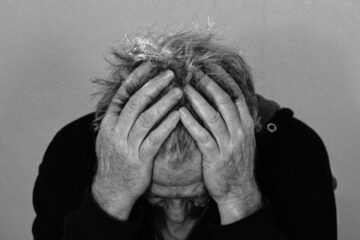![]()
INTRODUCTION
The law of torts has seen its origin in the Common law of England and has since the colonial rule spread itself among all the colonies that were controlled by the British. The incoming of torts law in India is also through the same channel with the establishment of the British courts in India, popularly termed as ‘British Indian Courts’. Post-independence, when India has become a republic, it has adopted many laws that were in force during the colonialism and have accordingly amended them so as to suit the Indian circumstances, the law of torts was one of them The Law of torts has been one of the earliest codified laws; it deals with civil wrongs and the liabilities thereof.

The main aim of the law of tort is to ‘make good for the loss suffered’ means the principle consideration to deliver justice is to ensure that the victim is rightly and enough compensated for the loss he has suffered due to the civil/ private wrong that the other person/ convict has done. Hence, most of the civil wrongs impose monetary liability for compensating the victim and restoring him to his earlier position. The liability in the form of punishments is exceptional under the law of torts. It is only for intentional/mental damage done to the victim.
NERVOUS SHOCK
Nervous shock is a mental/ psychiatric illness caused to a person because of an intentional or negligent act of another. This injury can be caused if the victim either sees an accident or merely hears it. For example A as part of a friendly prank tells B that her husband has died in an accident; however listening to such news B goes into a state of shock and then is hospitalized. Here, though A did not intentionally do the wrong, however, it is natural on part of B to be shocked; and hence A will be liable towards B.
The British courts while awarding damages and deciding the nature of liability to be imposed on the convict; have deeply studied the victim claiming the damages. The nature of damage caused affects the nature of damages to be awarded. Let us now look into some of the factors considered by the courts:
KENNEDY TEST
In the case of Dulieu vs. White[1], it was explained that: ‘When the victim is the ‘primary victim’ i.e., he/ she is the one whose personal safety was at risk because of the act of another; that has resulted in the state of his/her shock; then the opposite party would be held liable even to an extent of monetary and punitive damages so as to restore the initial position of the victim before the occurrence of such injury.’
FORSEABILITY TEST
Later in the case of Page vs. Smith[2]; it was explained that: ‘where there is reasonable foreseeability of a physical damage to be caused; even in absence of foreseeability of psychiatric damage, the victim/ claimant is eligible to claim for such damage.’
AFTERMATH TEST
Further, it was realized by the courts, that the definition of nervous shock is not only restricted to the victims being in fear for themselves, but also may be caused due to harm upon family or near and dear. Thereby in Bourhill v Young[3]; the court has laid down four things to be evaluated so as to decide upon the nature of damages to be awarded, they are:
- Relationship between the primary victim and the claimant
- The aftermath of the accident
- The means through which the claimant has received the knowledge about the accident towards the victim
- The manner and the psychiatric illness caused to the claimant.
INDIAN CONTEXT
In India, in the case of Lucknow Development Authority vs. M K Gupta; the court has ordered payment of compensation for harassment and mental agony endured by the plaintiff due to failure of the authorities to deliver the flat within the promised course of time.
It is to be noted that, in India there have not been any codified laws that relate to the wrongs under the law of torts. Further cases of nervous shock have been dealt with under the Specific Relief Act that is usually covered for the contracts or the Consumer Protection Act. Further in 1987, the Mental Health Act has been enacted so as to cover the rules regarding the persons who suffer from mental illness.
CONCLUSION
Therefore there is a growing need to have legislation to govern such civil wrongs; not only for India, must even the international community look into the development of universally consistent laws because of globalization around the world.
References:
[1] [1901] 2 KB 669
[2] [1995] UKHL 7
[3] [1943] AC 92



0 Comments